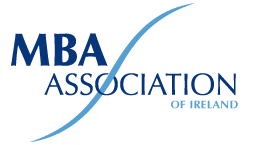

Overview
This specialism provides innovative knowledge on one of the key skills of the modern business world. A deep understating of the theories and practices of Project Management enables graduates to discuss and share new insights to identify new problems and challenges essential to project management and the overall success of an organisation. This pathway carefully links and aligns the programmes mandatory modules such as Managerial Financial Analysis, Global Issues for Management, Applied Strategic Management, Research Methods and Dynamic Leadership Development with Project Management Frameworks and Project Management Practices culminating with a dissertation which, ensures learners scrutinise social norms and employ tools and techniques of enquiry and producing something new which adds value to the business world. Indeed, Professor Darren Dalcher, Professor of Project Management and founder of the UK National Centre of Project Management, believes that the role of project management will continue to grow with a need for more project managers with project managers becoming “more involved in some of the strategic conversations” and he further states that “the management of project holds the potential to link strategy, stakeholders, benefits, usage of assets, facilities and capabilities…with the link between strategy and the management of resources [key] to effective project management and organisational success” (Institute of Project Management Ireland (www.projectmanagement.ie).
Click here to read one student's experience with the MBA programme at DBS.
Aims of the Programme
Graduates will be able to critically evaluate the importance of project management within organisations and apply appropriate project management frameworks to delivery enhanced performance in contemporary organisations. They will also be able to demonstrate critical awareness of business information, planning and control mechanisms in project management practices.
Key Features of the Programme
This MBA includes:
• Personal, academic and professional development.
• Lectures and assessment methods that apply the business knowledge required for students to perform as an effective manager in any organisation.
• Through, extensive study of key issues in business theories students will be capable of evaluation and application of important global management issues which impact on organisational effectiveness and performance.
• Knowledge and understanding of global business, most especially on issues such as globalisation, standardisation and customisation of products and services.
• Skills and knowledge to inform you how an organisation is best managed in a changing world.
With these in mind, the programme is designed to provide you with relevant knowledge, so that you are familiar with the latest theoretical and practical developments relating to business management and development.
Student Testimonial
“I chose DBS because of its cultural diversity. Having completed an MBA degree in project management, I secured a role with AWS data center, where I have been trusted with top roles and responsibilities based on my qualification.
I have been able to demonstrate my leadership and management skills, which has helped me to become the better version of myself to my employer. I have acquired a requisite knowledge and training from the best lecturers in DBS.”
Nosa Obasuyi
MBA Project Management

Course Content
Stage 1
|
Stage 2
|
Core Modules
Global Issues for Management
Strategic Marketing Analysis
Managerial Financial Analysis
Research Methods 1
Project Management Frameworks
Applied Strategic Management
Dynamic Leadership Development
Research Methods 2
Project Management Practices
|
MBA Award
Dissertation
|
Assessment Methods
Continuous assessment is an integral part of many of our taught modules. The weightings attaching to coursework and other forms of continuous assessment vary from module to module to facilitate all learning styles. You will experience a variety of teaching and learning assessment methods including lectures, seminars, tutorials, case studies, group and individual projects, examinations and reports.
Structure
The MBA degree programme consists of two stages. Stage 1 is a wholly taught component, contributing 60 credits.
Full-time
Stage 1 is a wholly taught component contributing 60 credits. These modules are delivered over two semesters.
Careers Opportunities
Upon completing the programme, graduates will have attained a critical awareness of business opportunities and challenges capable of devising appropriate strategies for ongoing professional development as well as a keen awareness of the requirements which ensure the sustainability and growth of the organisation. The programme is fundamentally rooted in creating an accomplished business postgraduate whose insights will inform strategic business decisions, from financial to people management, designed to increase productivity, profitability and an organisation’s value and market share.
Graduates will have the business skills necessary to move into senior management roles and pursue a leadership career path. Graduates will acquire skills and competencies in dynamic leadership development and business acumen as well as business expertise and learn how to effectively integrate strategic decision-making in their organisation. The programme invites learners to critically appraise the impact of internationalisation and diversity on economic activities and aims to unpack complex theories and practices ensuring a self-reflective practice where learners consider social norms and a socially responsible approach to business administration. The programme captures the unpredictability and diversity of the business world and simulates this diversity, enabling learners to devise approaches both individually and as part of a team.
Overarchingly, the programme aims and objectives create a critical understanding of core business functions as well as strategic business management, while also enhancing the innovative capability and practical, transversal and practical skills of the learners, ensuring the success of graduates in the business environment.
Entry Requirements
The minimum entry requirements for the Master of Business Administration are:
• Level 8 primary undergraduate honours bachelor degree with a minimum Second Class Second Division classification (2.2) from a recognised third level institution in any discipline from a recognised third level institution (or equivalent); or
• An equivalent professional qualification such as ACCA or CIMA.
• For applicants whose first language is not English and who have not previously undertaken a degree taught through English, evidence must be provided of proficiency in English language equivalent to B2+ or above on the Common European Framework of Reference for Languages (CEFRL). This must be evidenced through a recognised English Language test such as IELTS, Cambridge Certificate, PTE or DBS English Assessment. Test certificates should be dated within the last two years to be considered valid.
• GMAT examination is a mandatory requirement for all applicants who do not hold an Honours Bachelor Degree (Level 8) with a minimum of second class second division classification.
The programme is aimed at learners who wish to specialise in business administration with a view to entering industry in a high-level managerial role, to progress professionally or to undertake further business studies. Learners will achieve the business expertise to lead an organisation to strategic decision making ensuring a maximum return on investment across each department. Learners will be capable of dealing with diverse intrinsic and extrinsic business realities in a creative manner to ensure sustainability and growth.
Applicants who do not have a Level 8 qualification at a 2.2 award level and who have at least 3 years’ work experience may also be considered through the college’s normal RPL procedures. Relevant professional experience may be taken into account and individuals will be assessed on a case-by-case basis through DBS RPL procedures.
Fees
The course fees for the next academic year are €12,750 full-time, and €6,375 per annum part-time for EU students.
Click here to view international fees.
This covers the cost of tuition, registration and examinations. A full list of DBS Postgraduate fees is available here. You can also contact the admissions team who would be happy to discuss the options available for you.
Please note also that there is tax relief for Irish income tax payers at the standard rate of 20% on all fees exceeding €1,000 and up to €7,000.
All QQI accredited programmes of education and training of 3 months or longer duration offered by Dublin Business School (DBS) are covered by arrangements under section 65 (4) (b) of the Qualifications and Quality Assurance (Education and Training) Act 2012 whereby in the event that DBS ceases to provide the programme, for any reason, after learners have started on that programme, Kaplan Inc., as guarantor, will refund the moneys most recently paid by or for the learner. More details are included in the terms and conditions of learner admission to DBS (https://www.dbs.ie/terms-and-conditions) and on programme handbooks provided at induction.
Improve your employability
All of our postgraduate courses offer strong links with industry and the professional world and often carry accreditation from professional bodies. By choosing to study at postgraduate level, not only do you gain valuable skills and experience but you also demonstrate your determination to succeed in a chosen career.
Far from being a postponement to employment, postgraduate study can help you progress further and faster in your chosen career. And, if you're not certain what direction you would like your future to take, further study can provide a secure and structured space to help you find out through exploring your strengths and interests.
Get your foot on the career ladder
A large number of our postgraduate programmes include a work placement option, giving you the opportunity to gain vocational experience, make valuable contacts and gain transferable skills. It is also worth considering that some postgraduate qualifications are essential requirements to getting on the career ladder.
Gain skills for success
During your undergraduate degree you will have developed a strong foundation of transferable skills. Postgraduate study will build on this base, giving you the opportunity to put these highly valuable skills in to practice. You will also gain invaluable practical working examples that you can go on to use at interview to set you apart from other candidates.
Next Steps
Apply via our online application form.